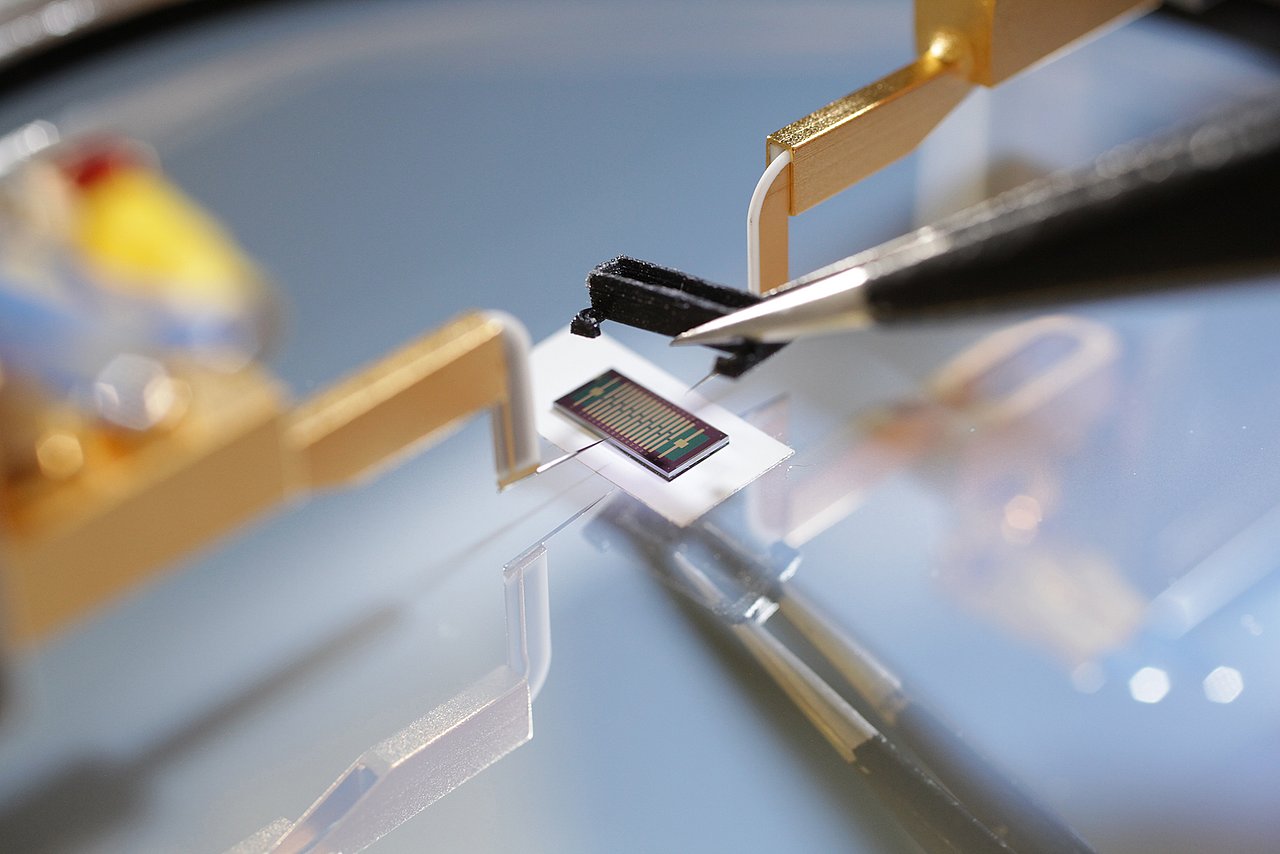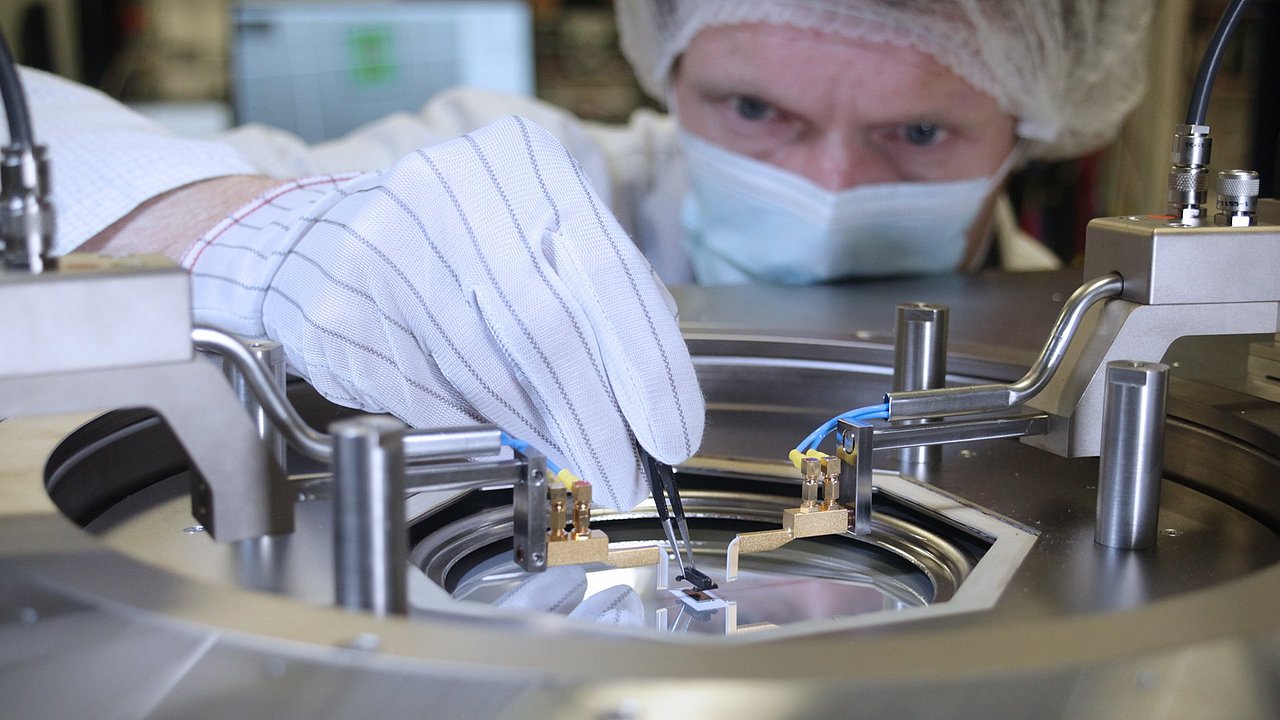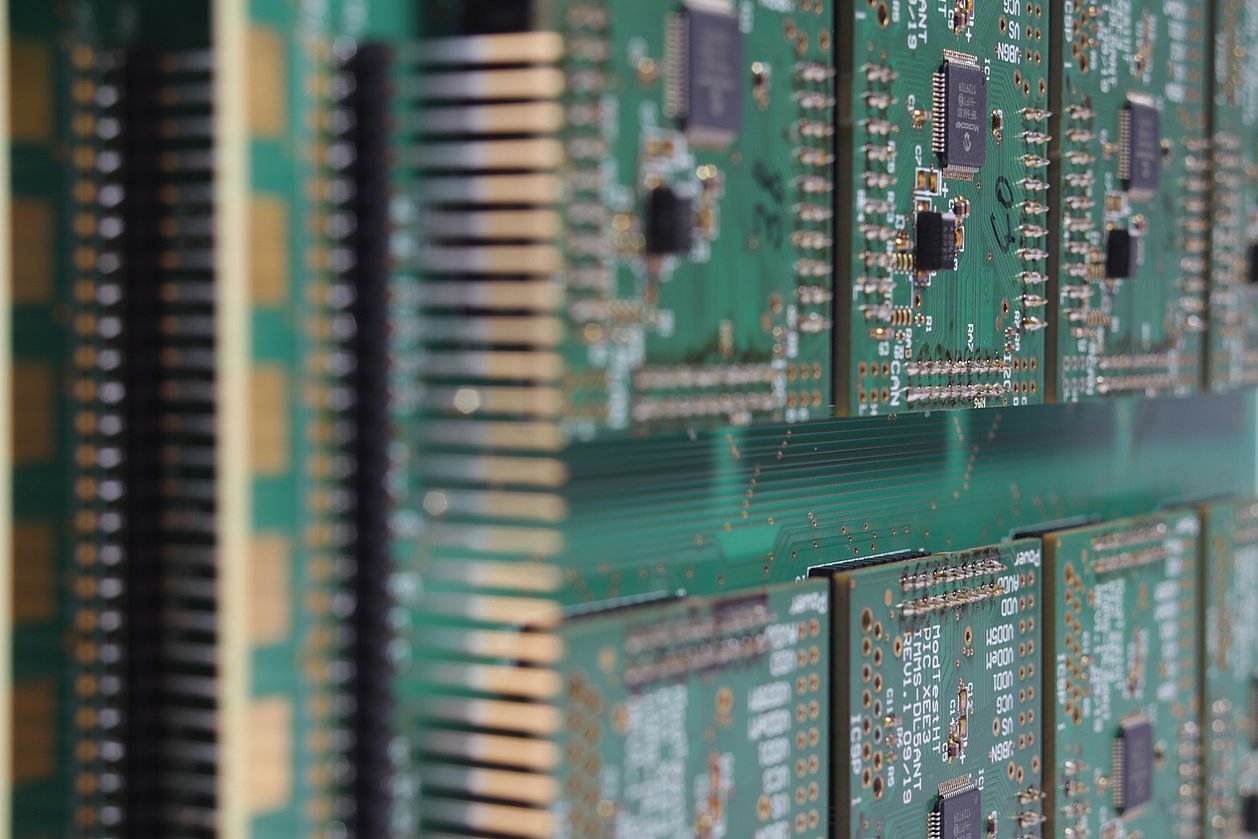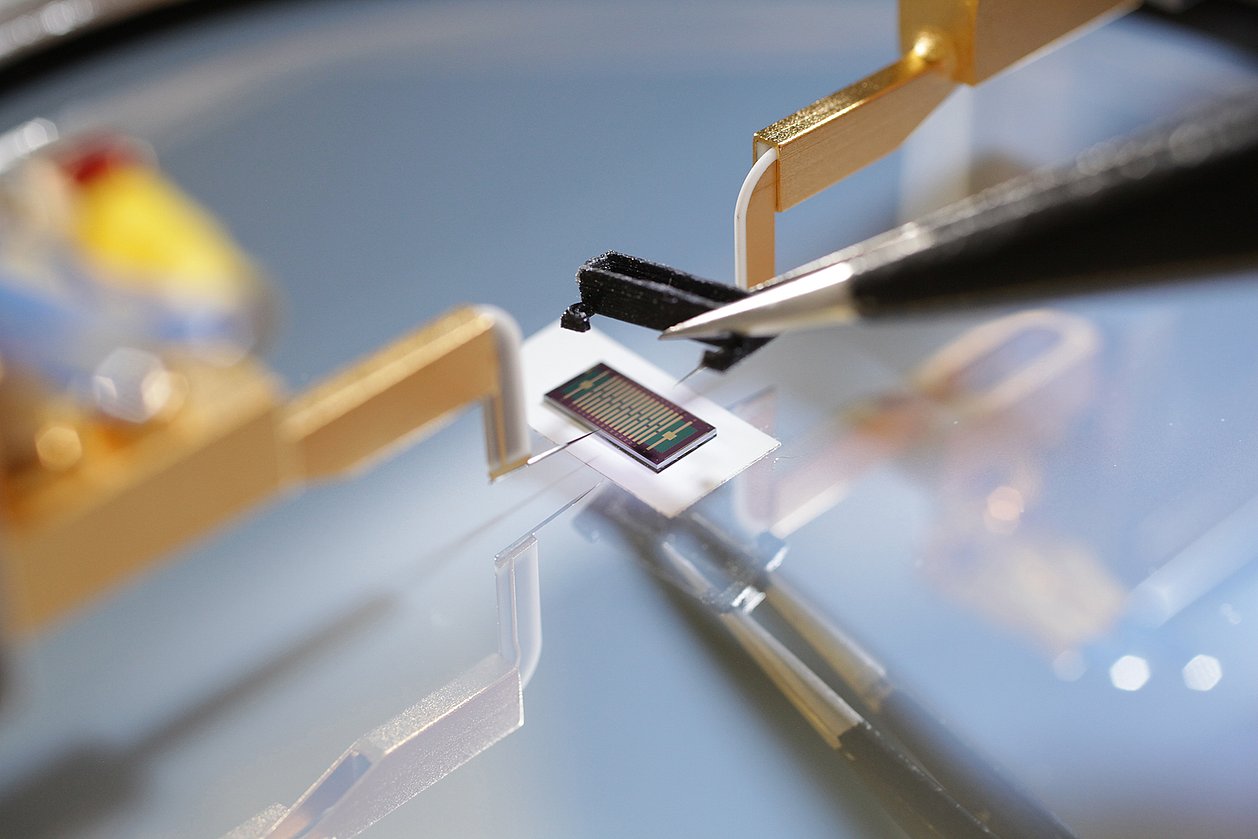Project ViroGraph
A novel technology platform with graphene-based field-effect transistor for the detection of SARS-CoV-2 is being developed
New platform for highly sensitive point-of-care devices
The SARS-CoV-2 virus pandemic clearly demonstrates the need for point-of-care systems with high analytical performance that can be used for on-site patient testing at reasonable prices.
In the project, a new electronic platform is being developed to open up graphene sensors researched at Jena University for new point-of-care devices. In future, these small and mobile devices should be as easy to use as Covid 19 rapid tests on site and detect viruses, viral proteins or antibodies with high sensitivity - comparable to PCR tests. The project should thus lay the foundation for many more precise, sensitive and specific applications in the field of on-site diagnostics beyond SARS-CoV-2.
Graphene sensors from the University of Jena
For this purpose, the concept of a graphene-based field-effect transistor (graphene FET) with a 1-nanometre-thin carbon membrane (CNM) for immobilising the capture molecules is being pursued. The 2D materials graphene and CNM are crystalline substances consisting of only one atomic or molecular layer and have special physical and chemical properties. Therefore, the field-effect transistors based on them have the potential of high analytical performance.
Biotechnology of the fzmb
With the graphene FET sensor, fzmb is working on the biotechnological solutions for the novel technology platform both for DNA investigations using PCR and for antigen-antibody tests. To this end, fzmb will take on the development of immunological and molecular biological detection systems using SARS-CoV-2 as an example, as well as the immobilisation of capture molecules with various spotting technology.
Miniaturised measurement technology of IMMS
The graphene sensors can be used to detect sensitive changes in conductivity during the coupling of the analytes of interest. To be able to measure these smallest changes in electrical currents in the range of a few nanoamperes, IMMS is developing suitable miniaturised measurement technology. This makes it possible to integrate the performance required for the application of very large measuring devices, which can normally determine such parameters, into a handy point-of-care device. Another challenge is to measure several graphene sensors simultaneously to be able to implement multi-parameter analytics.
Acronym / Name:
ViroGraph / Multiplex detection system for the identification of viruses based on graphene field-effect transistorsDuration:2021 – 2023
Application:
Life SciencesResearch field:Smart distributed measurement and test systems
Related content
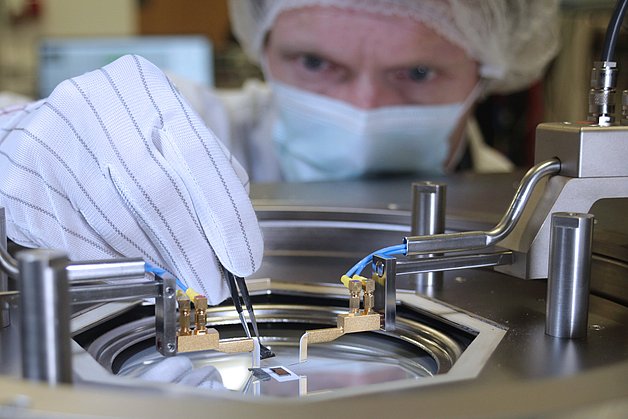
Press release,
Thuringian project develops novel technology platform for the detection of SARS-CoV-2
Change in electrical conductivity visualises virus material
Contact
Contact
Dipl.-Ing. Michael Meister
Head of Industrial Electronics and Measurement Technology
michael.meister(at)imms.de+49 (0) 3677 874 93 20
Michael Meister is your contact for testing services, the development of test methodologies, and long-term measurements. He answers your questions on Modular and mobile test systems that we develop in our research in Smart distributed measurement and test systems as well as about testing and characterisation of integrated sensor systems. He is responsible for the test equipment at IMMS and will support you in the validation of ASIC and MEMS developments.
Funding
Funded by the Federal Ministry for Economic Affairs and Energy (BMWi) / Federal Ministry for Economic Affairs and Climate Action (BMWK) on the basis of a resolution of the German Bundestag under IGF project no.: 21363 BR/1.


